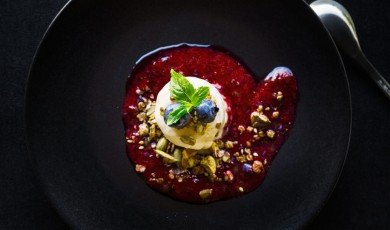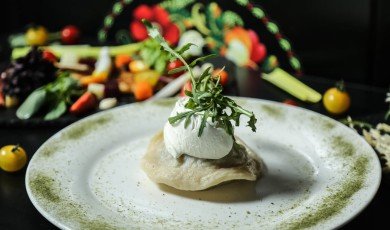
Spain’s vibrant dining scene is a symphony of flavors, where centuries-old traditions mingle with creative innovation to delight both locals and travelers. From the bustling tapas bars of Madrid to the serene vineyards of Rioja, food in Spanish speaking countries is more than a daily necessity—it’s an experience that brings people together. But beyond the joy of savoring paella under the Iberian sun, there lies a profound intersection between gastronomy and well-being. As hotels, restaurants, and cafés increasingly cater to international guests, the need for clear, compassionate communication—especially when it comes to health and wellness—becomes vital. This is where healthcare translation services and, more specifically, medical translation services infuse a new layer of care into hospitality, ensuring everyone can enjoy the flavors of Spain safely and confidently.
The Need for Medical Translation in Spain’s Hospitality Sector
Spanish cuisine is famed worldwide for its diversity and depth—think jamón ibérico, pulpo a la gallega, gazpacho, or chocolate con churros. Tourists flock to Spanish speaking countries to relish these culinary delights. But what happens when a guest has severe allergies or specific dietary requirements that must be strictly managed? Picture a visitor from Japan who’s celiac, or a family from the US navigating diabetes management. For them, a miscommunication on the menu isn’t merely disappointing—it could have serious health consequences.
That’s why healthcare translation services are becoming indispensable allies for Spain’s hotels and restaurants. These services help bridge language and cultural gaps, providing precise translations of menus, ingredient lists, and health-related information. Not only does this ensure the safety of guests, but it also communicates respect and hospitality—the core values of Spanish culture.
Menu Transparency, Allergens, and Special Diets
The Mediterranean diet is cherished for its health benefits, but even olive oil and fresh seafood can pose risks to those with allergies or medical conditions. With increasing globalization, many eateries across Spain have adapted menus to accommodate gluten-free, vegan, or low-sodium options. But the real challenge lies in communicating these offerings accurately to an international clientele.
This is where precise translation and cultural adaptation are crucial. A single mistranslated word—such as confusing “trigo” (wheat) with “trigo sarraceno” (buckwheat)—can be the difference between comfort and crisis. Medical translation professionals ensure that allergen information, nutritional facts, and preparation warnings are clear, reliable, and compliant with international health regulations.
For example, a coastal hotel in Barcelona may serve “suquet de peix” (Catalan fish stew). For someone with a shellfish allergy, knowing exactly which seafood varieties are used is essential. Collaborating with expert translators, hotels produce multilingual menus and allergy cards that reassure and empower guests.
Enhancing Guest Experience:
True hospitality goes beyond serving delectable food—it’s about cultivating peace of mind. With Spain being a hotspot for international conferences, wellness retreats, and medical tourism, many visitors require specific documentation or guidance for health and dietary issues.
Healthcare translation services can assist hotels in creating comprehensive information packets, from emergency instructions to descriptions of in-room amenities for people with limited mobility, vision, or dietary constraints. Consider the needs of a Brazilian guest hospitalized in Madrid, whose family wants to ensure proper meals follow their religious or health requirements; clear translated guidelines can ease anxiety and promote faster healing.
Restaurants in cosmopolitan cities such as Seville and Valencia often feature “safe dining” initiatives—menus that detail allergens in multiple languages or QR codes linking to up-to-date ingredient lists. Consulting with professional translators ensures these tools are not only accurate but culturally sensitive—after all, food is deeply tied to both health and heritage.
Supporting the Rise of Healthy Gastronomy in Spanish Speaking Countries
Today’s diners are savvy and health conscious. Culinary tourism increasingly overlaps with wellness travel, with visitors seeking both gourmet experiences and nutritional support. The rise of “spa cuisine,” vegan and organic restaurants, and dietitian-led hotel programs throughout Spain attests to this trend.
But meeting these expectations in a multilingual milieu is no small feat. Medical translation services help hospitality businesses present accurate information about the health benefits of their dishes, locally sourced ingredients, and compliance with international food safety standards. This not only attracts a broader clientele but fosters trust.
Leading hotels and restaurants are now collaborating with translators to produce not only multilingual menus, but also wellness brochures, spa treatment descriptions, nutrition workshops, and even training materials for staff to recognize and handle medical situations. These solutions drive five-star reviews and long-term guest loyalty.
Empowering Staff: Training and Awareness for Multicultural Service
Exceptional service begins with an empowered team. Chefs, waiters, concierges, and housekeepers all benefit from training that includes medical terminology in several languages. For example, learning how to gently inquire about food allergies in a guest’s native tongue, or how to react if someone manifests signs of anaphylaxis, is invaluable.
Healthcare translation services play a major role in developing clear, actionable training resources for hospitality staff. This extends from basic phrases and vocabulary to detailed emergency procedures, adapted for the cultural contexts of Spanish speaking countries.
As Spain and its neighbors continue to attract discerning global travelers, hotels and restaurants that prioritize health communication stand out for their commitment to guest welfare. Language is not just a tool for transaction—it is a bridge to empathy and trust.
A New Recipe for Hospitality
In the kaleidoscope of Spanish gastronomy, each dish tells a story—of culture, flavor, and now, of care. Embracing healthcare translation services allows Spanish hotels, restaurants, and cafés to create truly inclusive, healing environments where every guest’s well-being is valued.
The journey from farm to table—and from kitchen to heart—is enriched when communication is as vibrant and authentic as the food itself. With professional medical translation services at the table, the flavors of healing are savored by all, turning a meal in Spain into a safe, memorable, and deeply satisfying experience for guests from around the world.








